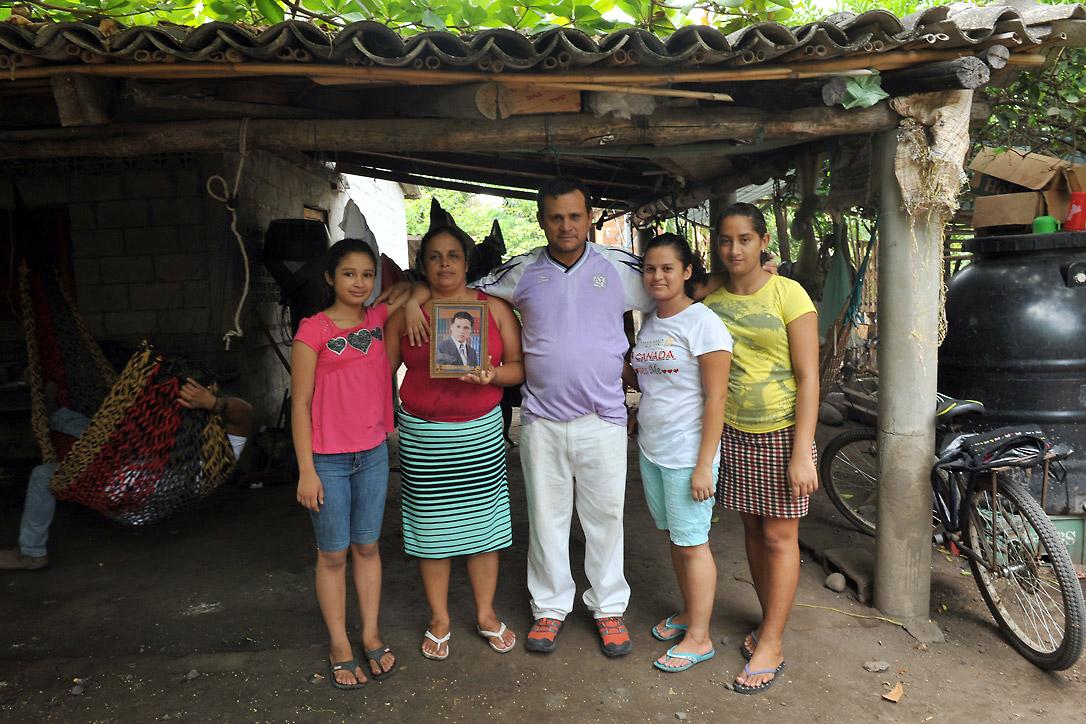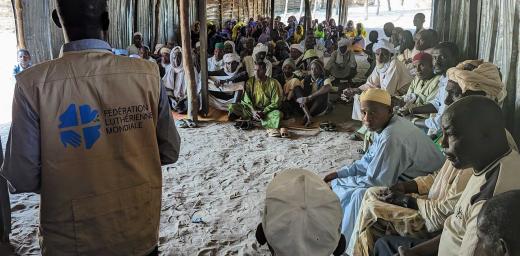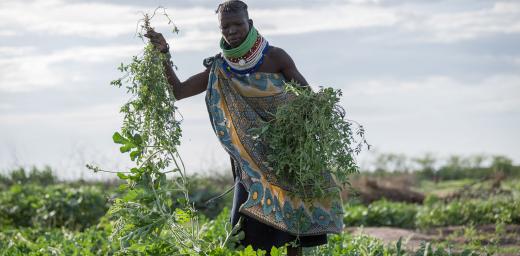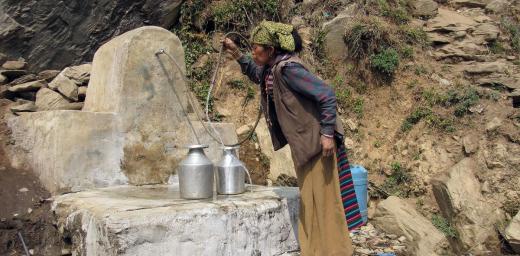Displaced by climate change

Rigoberto and his family with an image of their son, who was kidnapped on the migration route to the US. Photo: LWF/C. Kästner
(LWI) – “The stories aren’t true,” Rigoberto Monge, 44, says. “You only get a job when you are lucky.”
Rigoberto has been to the United States and back. Now he sits in the yard of his home in Ahuachapan, El Salvador, maybe 50 meters from the green border of Guatemala, together with his wife and daughters Pabla, 19, and Emilia, 12. In the background, his niece is shredding corn for tortillas. Chicken, ducks, cats and dogs run around. In the distance, a pig can be heard shrieking.
Rigoberto left this for the US for this. “We had no livelihood,” he says. So with the help of relatives in the US, he paid a trafficker or coyote, as they are called in Latin America. After 45 days he arrived in the US, worked at low-paid jobs and sent money home. Four years later, he had earned enough to build the house in which he now lives. Then he returned.
Addressing the causes of migration
Migration is one of the main issues for The Lutheran World Federation (LWF) program in Central America. By addressing the root causes of migration, the program tries to decrease the flow of men, women and youth who each year undertake the dangerous journey to a supposedly better life. For many, the American dream ends with deportation. They return with debt and traumatic experiences, only to have start again, in El Salvador.
“It was like an empty spot in the family,” his wife Maria Magdalena recalls of the time he was away. “I did not know him anymore,” his older daughter Pabla says. Her younger sister met Rigoberto for the first time at the age of six.
“It was like starting all over again,” Rigoberto recalls.
“We need to save the mangroves”
The reason for Rigoberto’s dangerous travel can be found a few hundred meters from the house: the beach of the Pacific Ocean and a nearby mangrove forest. Rigoberto is a fisherman. He and his neighbors live off crab and fish in the mangroves. But the forest is dying. Extreme weather and the rising sea level have upset the delicate ecological balance.
“The rising sea brings sand which blocks the entrance of the rivers. The tide flows into the forest but does not get out any more,” Rigoberto explains. Now the trees are permanently standing in water heated by the sun. “We can see how climate change affects our resources,” he says. “Many of the birds have migrated from the mangrove forest. The fish need fresh water, so they leave as well.”
LWF is supporting a local organization which is addressing that very problem. Rigoberto and his neighbors have organized an initiative to preserve the mangroves: They are digging irrigation trenches and replanting the trees in the worst affected areas. “The fish is part of what we are and what we do for a living,” Rigoberto says. “That’s why we look for alternatives now: We need to save the mangroves.”
Until they succeed however, people will leave the village like the fish have left the mangroves. Rigoberto’s son left for Mexico in March, and was kidnapped by one of the gangs that target migrants. Relatives in the US have paid USD 3,000 for his release.





